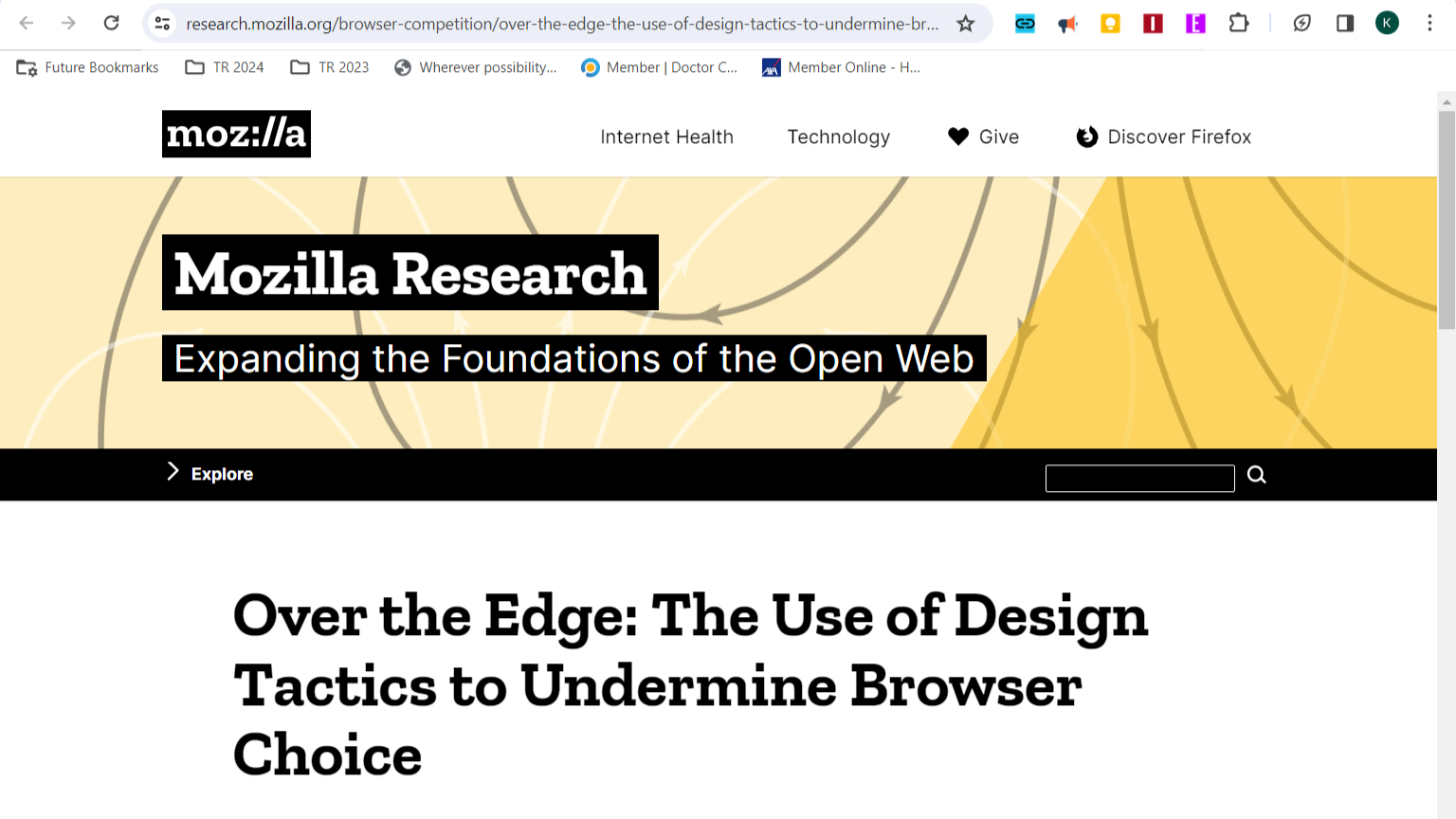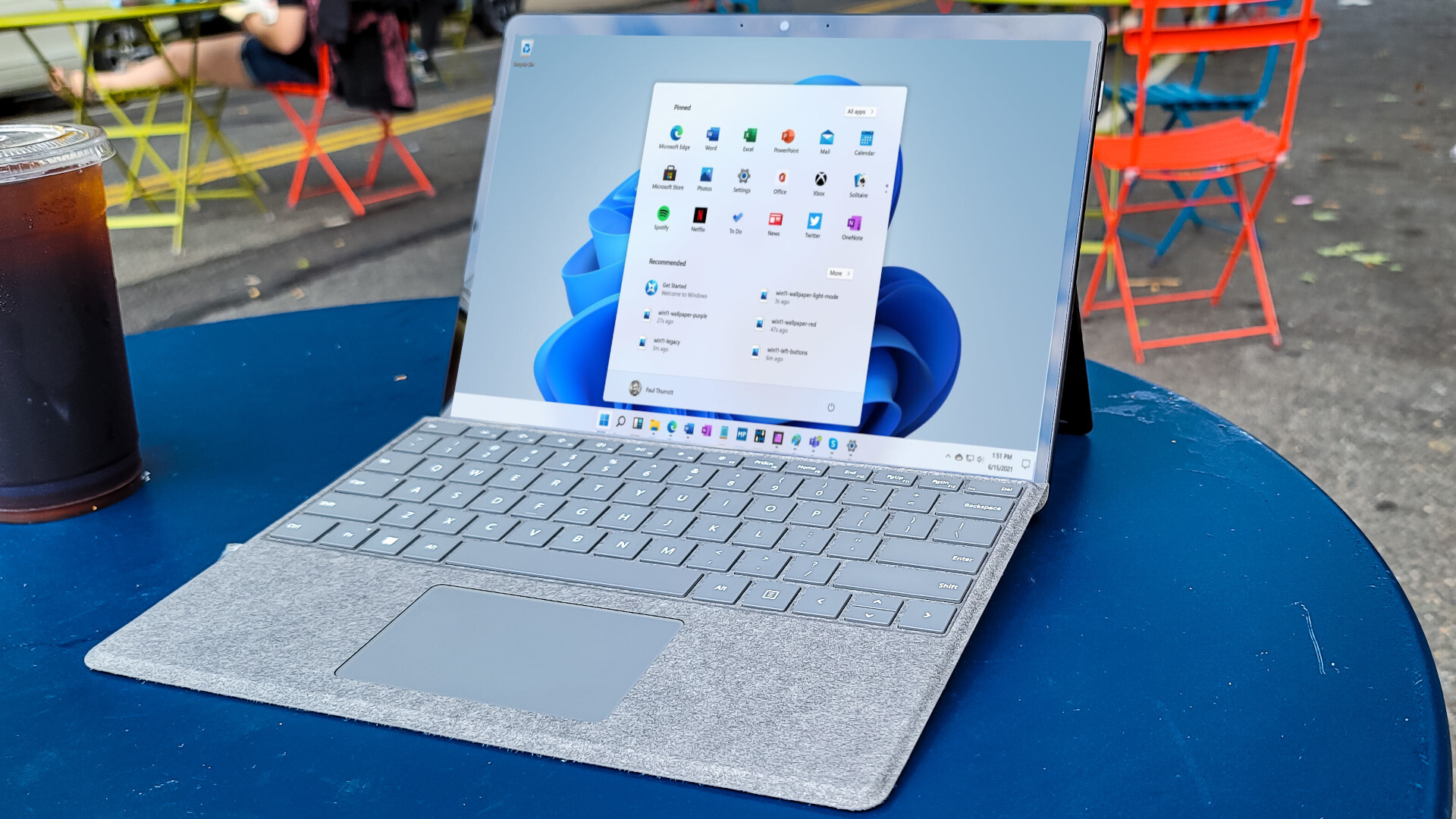Mozilla blows the whistle on Microsoft: 'Over the Edge' report accuses Windows 11-maker of browser bias and deceptive tactics
Mozilla accuses Microsoft of using deceptive tactics with Edge

Sign up for breaking news, reviews, opinion, top tech deals, and more.
You are now subscribed
Your newsletter sign-up was successful
Some rather serious accusations are being thrown in Microsoft’s direction by Mozilla - including that the company is pushing its proprietary web browser, Edge, on Windows users by using deceptive tactics. These allegedly include using misleading ads, notifications that are worded like system warnings, and confusing interfaces.
In case you don’t know, Mozilla is a non-profit open-source organization behind the Firefox web browser - which is a competitor to Microsoft’s Edge. Mozilla has addressed Microsoft directly, calling for it to stop its current practices, and has called for wider industry regulations to make things fairer for competing browsers.

It recently released a report titled “Over the Edge: The Use of Design Tactics to Undermine Browser Choice.” It opens by stating that users should have the right to choose their browser and use it without their operating system butting in.
It goes on to accuse Microsoft of using deceptive design elements, calling them “dark patterns” that try to not-so-subtly corral users into using Microsoft’s own Edge browser, which is installed by default in Windows 10 and Windows 11 (similarly to how Internet Explorer was in the past). Mozilla explains that this makes it hard for competitors to even get visibility, let alone be installed and used by Windows 11 users, hence putting Edge rivals like Chrome and Firefox at a disadvantage.
Mozilla goes into detail about some of the tactics it alleges Microsoft is using. They include actions like injecting Edge ads when users went to Chrome’s download page or when users were using Bing search in other browsers, designing a deliberately confusing Windows 11 interface, and instances of misleading language in notifications that look like system warnings. You can check out Mozilla’s complaints in their entirety in its report.

The dust has been kicked up - what comes next?
The organization suggests that Microsoft is narrowing user choice and prevents fair market competition for browsers. Mozilla doesn’t mince words and urges Microsoft to reconsider its “harmful designs.” It also calls for regulators to get involved and facilitate fairer competition.
So, the ball’s in Microsoft’s court, and the company has yet to respond to Mozilla’s report. This isn’t the first accusation of this kind leveled at Microsoft (among other tech companies). Some of Mozilla’s grievances might be addressed in the upcoming Digital Market Act (DMA) in Europe, which comes into effect in March 2024, so we’ll see.
Sign up for breaking news, reviews, opinion, top tech deals, and more.
We’ll be watching to see if Microsoft responds, as many users will agree with Mozilla, and competition is often helpful for consumers to have more options and better outcomes. We've also contacted Microsoft for a response to this report.
It’s best not to rush to conclusions, but Microsoft does have a prolific history of poor market competition practices (that many people probably don’t remember, luckily for Microsoft). Microsoft is no stranger to being in hot water with regulators, including when it comes to browsers - it faced multiple legal challenges in the US regarding its controversial market and distribution practices, particularly with programs like Internet Explorer, in the 1990s. Let’s hope it’s not reverting back to old habits.
YOU MIGHT ALSO LIKE...
Kristina is a UK-based Computing Writer, and is interested in all things computing, software, tech, mathematics and science. Previously, she has written articles about popular culture, economics, and miscellaneous other topics.
She has a personal interest in the history of mathematics, science, and technology; in particular, she closely follows AI and philosophically-motivated discussions.